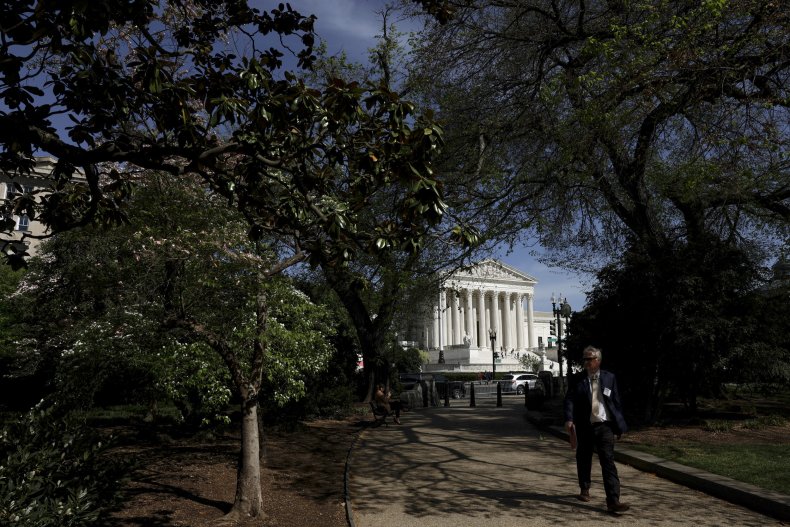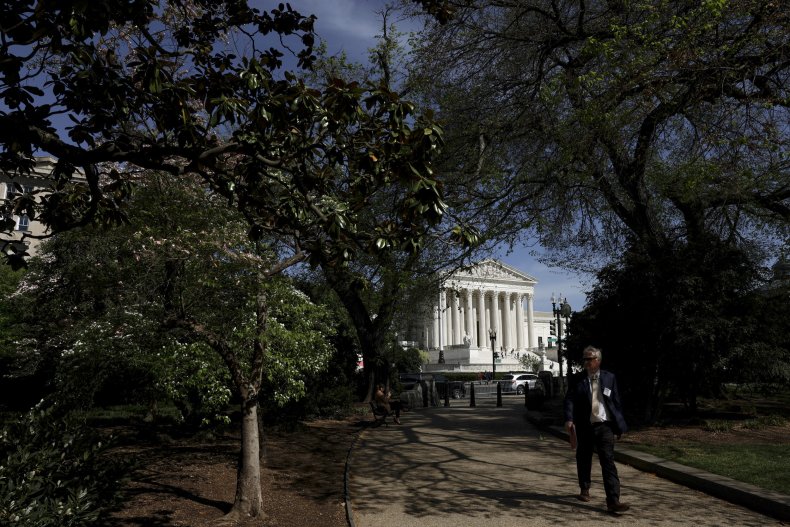
Cet article ayant pour thème « la justice » se propage sur internet, nous avons décidé de vous le révéler ici.
Le titre séduisant (Justice Alito Says He May Know Who the Leaker Is!) en dit long.
Identifié sous le nom «d’anonymat
», l’écrivain est connu et fiable pour d’autres éditoriaux qu’il a publiés sur le web.
Vous pouvez donc faire confiance à cette parution.
L’encart a été divulgué à une date indiquée 2023-05-02 09:28:00.
L’article original en question :
Justice Samuel Alito has told The Wall Street Journal that he may know who leaked his draft opinion overruling Roe v. Wade, but that he lacks sufficient evidence to accuse the suspect in public. That is commendable, but it doesn’t tell us whether he shared his suspicions, on a confidential basis, with the marshal’s office which the chief justice assigned to conduct the investigation. That office concluded that it could not determine by « a preponderance of the evidence » who the culprit is. But Alito may have enough information to satisfy the lower standard of « probable cause. » That standard would justify focusing the investigation on the specific suspect and requiring him or her to sign an affidavit, undergo a lie detector, and submit to a more intrusive search.
Alito’s information might also incline the Justice Department or Congress to conduct its own investigations with far greater resources than are available to the marshall’s office. These include granting the suspect and/or other possible witnesses use immunity and compelling them to testify fully. They also include subpoenaing the Politico journalists who published the leaked opinion. They would certainly invoke the journalist/source privilege, but that privilege is not absolute under federal law. Moreover, the leaker here was not a whistleblower: he or she was not disclosing government corruption or misconduct; the only corruption and misconduct was engaged in by the leaker.
An important purpose of the privilege is to encourage disclosure of corruption in government. The type of leak done here must be discouraged, not encouraged. It was calculated to interfere with the proper workings of the Supreme Court. It was also dangerous: it may have led to the attempted assassination of Justice Brett Kavanagh, who was seen as a swing vote. It is imperative that the leaker be identified and held accountable.

Anna Moneymaker/Getty Images
This was not merely a leak of secret information. It was almost certainly part of a plan to corruptly change a Supreme Court opinion by improper means. The leaker probably was well-intentioned: he or she believed—as I do—that overruling Roe v. Wade would have a terrible impact on pregnant women. But the means chosen by the leaker—early disclosure of the draft opinion with the goal of putting external pressure on possible swing justices to change their votes—is utterly improper under the rule of law and the rules of the Supreme Court.
Determining the source of the leak may be difficult but it is not impossible. The likely suspects number under 100. Alito said he was certain it was not a justice. The only other people who could have given an accurate and complete draft opinion were the law clerks, printers and the small number of other Scotus employees who had access to it. The most likely suspects are law clerks for the dissenting justices. These are only a few handfuls.
Moreover, it is likely that some law clerks who were not themselves the leakers know or have a pretty good idea who the culprit may be. He or she may well be seen as a hero to some—a civil disobedient who was willing to risk discipline in the hope of preventing a greater evil. But civil disobedients should be willing to accept the consequences of their lawlessness, which this one has been unwilling to do.
There is a growing suspicion that the inability to catch the leaker may reflect ambivalence by some about the willingness to undergo the trauma of an accusation and public accounting. They may believe that the damage has been done and that anything more will only cause recriminations and further damage to the high court as an institution.
Alito almost certainly does not share that view. If he did, he would not have said what he said to The Journal, which he had to know would ignite interest in an issue that was dying a slow death. Indeed, he may well share the view that more can be done if there is the will to do it, and that his interview should make it more difficult to continue to do nothing.
I hope that is the case, because the status quo is untenable. The culprit must be identified and brought to Justice, not only to deter further leaks, but to refute the growing belief that the lack of progress in the investigation may reflect if not an actual cover-up—at least an unwillingness to uncover a painful truth.
Follow Alan Dershowitz on Twitter @AlanDersh and Facebook @AlanMDershowitz.
His new podcast, « The Dershow, » is on Spotify, Apple Podcasts, and YouTube
Dersh.Substack.com. He is the author of Get Trump: The Threat to Civil Liberties, Due Process, and Our Constitutional Rule of Law.
The views expressed in this article are the writer’s own.
Vous aimerez aussi:
De la justice dans la Révolution et dans l’Église/Cinquième Étude,Clicker Ici .
Justice et charité,Ouvrage . A emprunter en bibliothèque.
Vocabulaire anglais-français à l’intention des apprenants avancés/K,(la couverture) . Disponible à l’achat sur les plateformes Amazon, Fnac, Cultura ….

